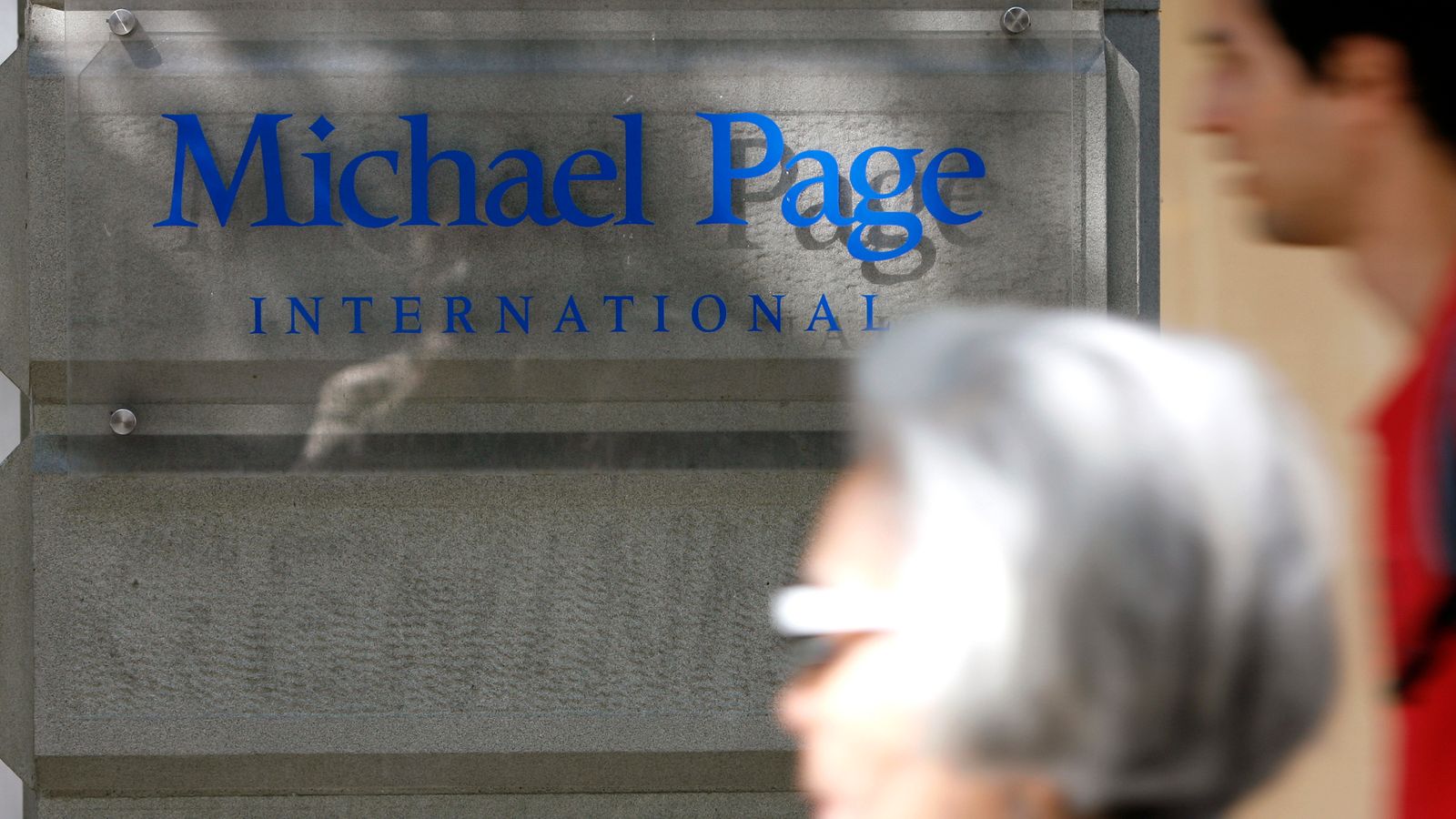Profit warnings at recruitment firms show unemployment is likely to rise

With recessions expected in many parts of the world during 2023, it is highly likely that unemployment will rise in a number of economies this year.
Supporting that argument are twin profits warnings during the last 48 hours from two of the UK stock market’s best-known recruitment firms, Robert Walters and Pagegroup.
Tuesday saw Robert Walters, which specialises in placing professionals in fields such as accountancy, banking and engineering, warning of “difficult market conditions”.
The company indicated it has been hit by the slowdown in the tech sector – which shed an estimated 150,000 jobs globally last year – in the US in particular. It said that, during the final three months of last year, “tough market conditions across the US resulted in a significant decline in net fee income”.
Robert Walters, whose tech sector clients include Netflix and Amazon, said its net fee income during the quarter was down 2% in Japan and 3% in Australia, while net fee income in mainland China was down 24% year-on-year due largely to COVID disruption and related restrictions.
The company’s founder and chief executive, Robert Walters, added: “The global macro-economic backdrop became increasingly uncertain as the quarter progressed, resulting in a softening of recruitment activity levels across many of the group’s markets.”
News that profits for the year would be less than the market was expecting, although still a record, sent the shares down 5% at one point before they closed down 3.3%.
A second, broader warning
That warning was followed by one today from the larger Pagegroup.
Advertisement
The company, which employs 9,000 people in 37 countries around the world, is more broad-based than Robert Walters as it covers four different areas of recruitment – executive search, qualified professional, clerical professional and outsourcing.
It, too, is set to report record results for 2022 as a whole but, like its rival, had to warn of a slowdown in business during the final three months of the year.
Nicholas Kirk, who succeeded Steve Ingham at the end of last year, said: “As the quarter progressed, conditions became increasingly challenging, and we saw a reduction in both candidate and client confidence, leading to further delays in decision-making, as well as candidates being more reluctant to accept offers.
“Due to these tougher trading conditions, gross profit per fee earner, our measure of productivity, declined 12% compared to [the final three months of] 2021.”
He singled out “increased caution amongst both clients and candidates” in France in December, while in the United States, a slowdown in housebuilding hit activity in construction, the company’s biggest business in the country. China and Hong Kong, as with Robert Walters, were also hit by COVID.
‘Challenging trading conditions’ in the UK
In the UK, where the company trades under the Michael Page banner under which it began life in 1976, profits for the final three months of the year were down 1.9% on the same period in 2021.
The company added: “We saw more clients deferring hiring decisions and candidates becoming increasingly cautious about accepting offers.”
It said that, reflecting more challenging trading conditions, it cut the number of fee earners it employs by 26 during the period.
Shares of Pagegroup, which fell by 7% on the back of the Robert Walters profits warning on Tuesday, have however rallied today by 4% in a recognition that the sell-off the day before might have been overdone.
But the twin warnings have cast a cloud over the sector and particularly because two more staffing groups, Hays and SThree, both warned at the end of last year about a slowdown in trading.
Graham Brown, analyst at broker Stifel, told clients this morning: “It appears that the softening macro environment is now catching up with the staffers.”
What job losses tell us
Unemployment tends to be a lagging indicator, in the jargon, of what is happening in an economy. Job losses usually only take place after an economy has begun to slow.
The recruitment and staffing firms tend not to be, though, because they see a slowdown in client activity and a weakening of confidence among those looking for new jobs long before those translate into a slowdown in employment.
So they can be seen as signals of what is happening in the here and now.
The bad news to have come from the sector in recent days and weeks underline the fact that the tough medicine being administered by central banks – interest rate rises – to tackle inflation is having an impact on the jobs market.
The central banks may take comfort from that, in that a weaker jobs market might ordinarily bear down on wage inflation, were it not for evidence that, particularly in sectors where there are skills shortages, workers in demand are still able to command inflation-busting salary increases.
So central banks might also be forgiven for worrying that their recent interest rate hikes are starting to have unwanted side effects.
That said, it is important to keep these trading updates in perspective. Both Robert Walters and Pagegroup have just said they expect to report record profits for 2022, albeit not quite as good as expected.
And the fourth quarter of 2022 was always going to be difficult, in terms of year-on-year comparisons, due to the way business picked up in the final three months of 2021 as COVID restrictions around the world began to fall away.
As Tom Callan, analyst at the investment bank Investec, put it today in a note to clients: “The prior year comparator was extremely tough, in our view, and thus we view this as more of a mean reversion as opposed to anything more pervasive.”
The alerts do mean, though, that the sector will be under greater scrutiny in coming months than perhaps it has been used to.